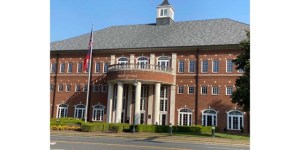Fort Oglethorpe will vote on Sunday alcohol sales
Published 11:22 am Tuesday, May 10, 2011
On July 1 Georgia will become the 48th state to lift a state ban on Sunday alcohol sales. So, in November Fort Oglethorpe voters will have the opportunity to “yea” or “nay” the practice in their city.
Trending
After considerable discussion and unorthodox parliamentary procedures, the Fort Oglethorpe City Council Monday night approved a resolution to call for a referendum on the issue by a 3-2 vote.
All five council members insisted that they do not approve of Sunday sales, but the vote split on a line between a strong stand for morality and against the pitfalls of alcohol abuse versus the desire to allow residents to have a voice in the matter.
“This came up quick, and I think the public has a right to have time to look at this and discuss it,” said council member Johnnie “Red” Smith, who opposed the resolution along with council member Louis Hamm.
Smith introduced a motion to postpone the council vote on the resolution until September when he said public hearings could be scheduled.
But Fort Oglethorpe elections superintendent Orma Luckey pointed out that candidate qualifying for the November election ends Aug. 31, and the resolution would have to be approved by then to be on the ballot.
Council member Earl Gray, who approved the resolution along with council members Charles Sharrock and Eddie Stinnett, took exception to the issue being brought up quickly. “Unless you’ve been under a rock you know this has been in process since the first of January,” he said.
Trending
Gov. Nathan Deal signed the bill into law on April 28, just hours before flying to Catoosa County to survey the damage from tornadoes the previous day.
Many Georgia counties and cities already allow restaurants and bars to sell alcohol by the drink on Sunday. The new law would let voters approve package sales by grocery and convenience stores.
Gray said that since the law provides for it, he sees referendums as the proper way for local elected officials to represent their constituents.
“They’ve already been approved in about 16 counties since the governor signed it,” he said. “I think we need to think before we go and table this thing and then try to rush it in right before the election.”
The effort to allow Sunday sales in Georgia has embattled state lawmakers for several years, with previous bills being shot down during the administration of Gov. Sonny Perdue, a teetotaler who said he would veto any such bill.
With Perdue gone, supporters of Sunday sales renewed lobbying efforts and overcame the bulk of opposition by staunch conservative Republicans in the Legislature.
Deal and other Republicans like state Sen. Jeff Mullis of Chickamauga said that while they do not favor the sale of alcohol on Sunday they do favor giving citizens the right to make the decision for themselves at the local level.
But Hamm said he has to fight it at every turn because he can’t go against his biblical principles. “I don’t separate them between being outside or inside these chambers.”
Several members of local churches attended the meeting, and Mayor Lynn Long allowed one pastor to speak at the lectern, a move that is not typical procedure for resolutions brought before the council.
Matt Hull of the Cloud Springs Baptist Church said putting the matter on the ballot would be a mistake. “If you were really serious about improving the lives of our community you would outlaw the sale of alcohol and we would become a dry county again.”
Considering the lengths to which Fort Oglethorpe officials went in courting Costco, the largest wine retailer in the U.S., to locate in the city, that is not likely to happen.
Hull said he is convinced that the motivation for allowing Sunday sales revolves around money through increased tax revenue. “I assure you the money gained in tax revenue will not even compare with the cost involving law enforcement, fatal car accidents, and lost wages. We’re selling our souls when we continue to become a purely secular, pagan society.”
Statistics gathered by law enforcement officials nationwide have generally shown no significant increase, and in some cases a slight decrease, in crime following new alcohol approval measures.
Regulation, the 21 year-old drinking age, stricter drunk-driving laws, and education have all been cited in reports on a continuing decrease in DUI arrests and alcohol-related fatalities in America over the past two decades.





